
26 minute read
Exness Social Trading Minimum Deposit - (Update 2025)
The Exness Social Trading Minimum Deposit is a crucial aspect for aspiring traders who are considering using this platform. The concept of social trading has gained significant traction in recent years, allowing individuals to learn from experienced traders and mimic their strategies. This innovative approach opens doors for both novice and seasoned investors, but understanding the minimum deposit required is fundamental in assessing whether this platform aligns with your trading goals.
👉 Visit Website Exness Official ✅
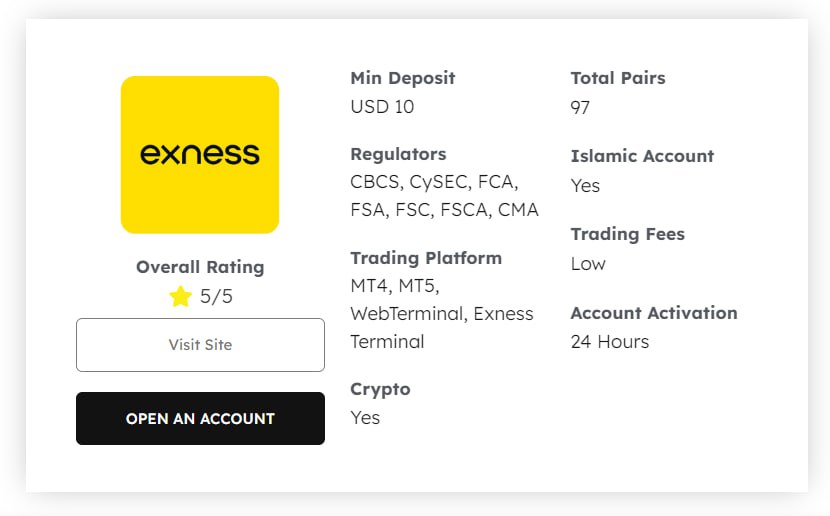
In this article, we will explore various facets of Exness Social Trading, including the minimum deposit requirements, operational mechanics, legitimacy, and much more. Join us as we delve into the world of Exness Social Trading, providing you with a comprehensive overview that can enhance your trading experience and knowledge.
Understanding Exness Social Trading: A Comprehensive Overview
Exness Social Trading stands out in the competitive landscape of online trading platforms by offering unique tools that allow users to connect, share insights, and follow successful traders. In essence, this method allows users to leverage the expertise of seasoned traders while minimizing risks associated with trading independently.
Social trading combines social networking and trading, enabling users to view the performance of other traders, analyze their strategies, and copy trades in real time. This platform is especially appealing to new traders who may feel overwhelmed by the complexities of financial markets.
The primary objective of Exness Social Trading is to democratize trading, making it accessible to everyone, regardless of their prior experience. With a user-friendly interface and robust analytical tools, users can customize their trading experience and choose whom they wish to follow based on their preferences.
💥 Read more:
The Concept of Social Trading
At its core, social trading revolves around the idea of collaboration among traders. Users can interact with each other, share insights, and replicate successful trading strategies. This community-driven approach fosters learning and growth, making it easier for newcomers to navigate the trading waters.
Many successful traders often share their strategies and insights, allowing others to benefit from their experiences without directly investing time in research and analysis. Social trading platforms typically offer features such as leaderboards and performance metrics, enabling users to gauge the effectiveness of traders they wish to follow.
The Importance of Community Engagement
Community engagement plays a vital role in the success of social trading platforms like Exness. As users interact with each other, they create an environment that encourages knowledge sharing and collaboration. The ability to communicate openly helps traders refine their strategies and develop a deeper understanding of market trends.
Moreover, this communal aspect builds trust among users. Traders are more likely to engage with those who openly share their trading results and methodologies, fostering a sense of accountability within the community.
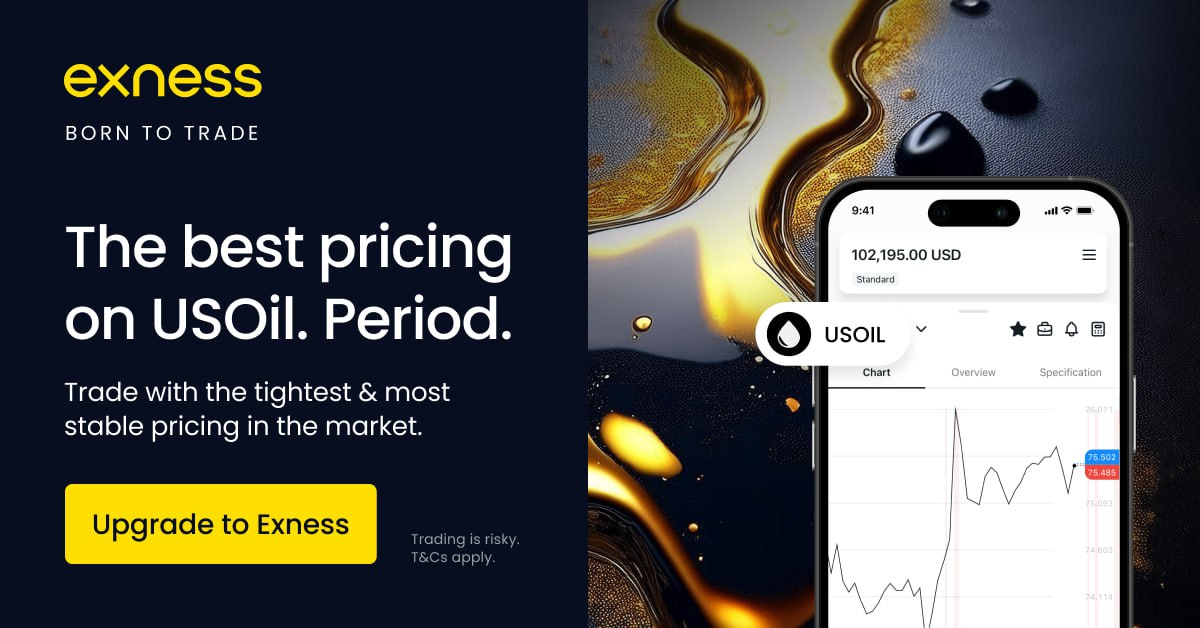
Key Features of Exness Social Trading
Exness Social Trading encompasses several features designed to enhance user experience and increase trading success. Key elements include:
· Copy Trading: Users can automatically replicate trades from skilled traders, easing the burden of decision-making.
· Performance Metrics: The platform provides detailed analytics, showcasing the performance of various traders, helping users make informed choices about who to follow.
· User-Friendly Interface: Exness offers an intuitive platform that simplifies navigation for both new and experienced traders.
By leveraging these features, users can immerse themselves in a supportive trading ecosystem that nurtures learning while maximizing potential gains.
👉 Visit Website Exness Official ✅
Exness Social Trading Minimum Deposit Requirements
Before diving into Exness Social Trading, it's essential to understand the minimum deposit requirements that come with opening a trading account. The structure is designed to accommodate both beginners and experienced traders, ensuring accessibility to a wide audience.
The minimum deposit varies depending on the account type chosen by the trader. By offering flexible options, Exness caters to different financial situations, allowing users to select a plan that aligns with their trading ambitions.
Understanding the minimum deposit can help users gauge the level of commitment required when starting their trading journey. Furthermore, it allows traders to set realistic expectations regarding initial investments.
Different Account Types and Their Minimum Deposits
Exness provides various account types, including Standard, Pro, and ECN accounts. Each one comes with distinct features tailored to different trading strategies and preferences. These account types enable traders to choose a model that resonates with their objectives.
· Standard Account: This type usually requires a lower minimum deposit, making it ideal for beginners. It offers a straightforward trading environment with competitive spreads.
· Pro Account: Designed for more experienced traders, the Pro account demands a higher minimum deposit. This account type offers advanced features and tighter spreads, which can be beneficial for serious traders looking for optimal conditions.
· ECN Account: This account type caters to professional traders who require direct access to interbank liquidity. The minimum deposit is generally higher, reflecting the advanced capabilities offered.
The flexibility in account types allows traders to start with a suitable investment level, gradually scaling up as they gain confidence and expertise.
👉 Visit Website Exness Official ✅
Factors Influencing Minimum Deposit Amounts
Several factors influence the minimum deposit amounts across different account types. Market conditions, regulatory requirements, and the broker's business model play significant roles in determining these figures.
For example, during periods of heightened market volatility, brokers may adjust minimum deposit levels to manage risk effectively. Additionally, regulatory compliance may necessitate certain deposit thresholds to ensure the safety of funds and adherence to industry standards.
Traders should keep these dynamic factors in mind when evaluating their entry points into Exness Social Trading.

Accessibility for New Traders
One of the remarkable aspects of Exness is its commitment to making social trading accessible for new traders. The relatively low minimum deposit requirement enables individuals, even those with limited resources, to participate in the trading environment.
This focus on accessibility contributes to a diverse community of traders, enriching the collective knowledge base. As novices join the platform, they can interact with and learn from experienced traders, thereby enhancing their skills and growing their portfolios.
Ultimately, the minimum deposit requirements at Exness Social Trading form a critical entry point for traders. By understanding these parameters, users can confidently embark on their trading journey, knowing they have the support and resources needed to thrive.
How Exness Social Trading Works: A Step-by-Step Guide
Navigating the intricacies of Exness Social Trading can seem daunting at first glance. However, breaking down the process into manageable steps reveals how straightforward and accessible it is.
To get started, traders must register an account, fund their deposits, and begin exploring the platform’s features. Below, we examine each stage in detail, shedding light on the entire trading process.
Registration Process for Exness
The first step to engaging in Exness Social Trading is registering for an account. This process typically involves filling out an online form with personal information, including name, email address, and contact details.
Once the registration form is submitted, users will receive a confirmation email containing a link to activate their account. After activation, traders can log in to their Exness account and proceed to set up their trading profile.
Verification is another important part of the registration process. It typically involves submitting identification documents to confirm one’s identity and comply with regulations. Completing this verification ensures that users can access certain features and withdraw funds securely.
👉 Visit Website Exness Official ✅
Funding Your Account
After successfully registering, traders must fund their accounts to start trading. Exness offers several payment methods, including credit/debit cards, bank transfers, and e-wallets, giving users flexibility in their funding options.
The funding process is generally straightforward, allowing traders to transfer funds quickly and easily. It's crucial to be mindful of the Exness Social Trading Minimum Deposit, as meeting this requirement is necessary to activate trading accounts and begin copying the strategies of experienced traders.
Users can also monitor their account balances and transaction history through the Exness platform, providing transparency and control over their funds.
Choosing Traders to Follow: The Copy Trading Feature
One of the standout features of Exness Social Trading is the ability to copy trades from successful traders. This is particularly advantageous for newbies who may not yet possess the skills or knowledge to make informed trading decisions.
When using the copy trading feature, users can browse a list of traders based on their performance metrics, such as profit percentages, maximum drawdown, and risk levels. This information empowers traders to make data-driven choices when selecting who to follow.
Once a trader is chosen, users can set specific parameters for how much capital to allocate to copying that trader’s strategy. The system automatically replicates trades in real-time, allowing users to benefit from the expertise of seasoned traders without requiring constant monitoring.
👉 Visit Website Exness Official ✅
Monitoring Performance and Adjusting Strategies
As traders engage in social trading, it's essential to monitor performance regularly. Exness provides valuable analytical tools that allow users to assess the success of their copied trades and adjust their strategies accordingly.
Traders can evaluate their progress by comparing outcomes against set goals and benchmarks. If a particular trader’s performance begins to decline, users have the option to switch to different traders or adjust their allocation strategies.
Additionally, ongoing engagement with fellow traders and participation in discussions can provide insights into evolving market conditions, enhancing the overall trading experience.
Through these steps, Exness Social Trading creates an inviting and supportive environment for both novice and experienced traders, encouraging continuous learning and collaboration.
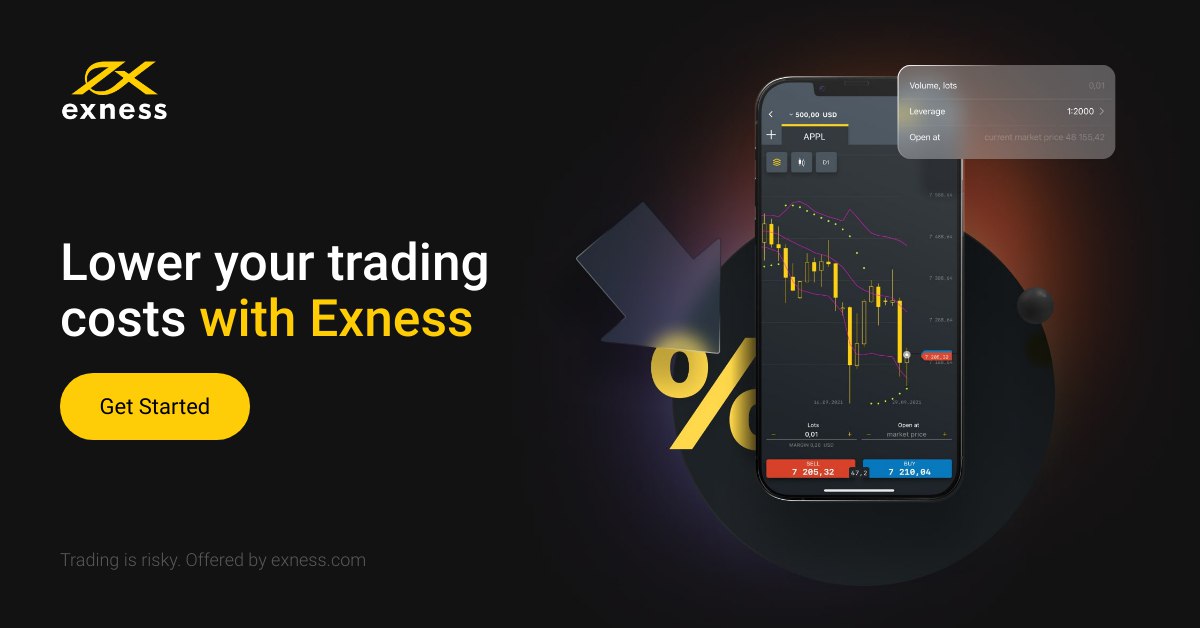
Is Exness Social Trading Legitimate and Safe?
With the increasing popularity of online trading platforms, questions surrounding legitimacy and safety have become paramount. Is Exness Social Trading legit? The answer to this question is multifaceted, involving an examination of regulatory compliance, security measures, and user experiences.
When choosing a trading platform, it is essential to consider these factors to ensure that your investments are safeguarded and that you are operating within a reputable framework.
Regulatory Compliance and Licensing
Exness operates under strict regulatory oversight, holding licenses from various financial authorities. This regulatory compliance enhances user confidence in the platform’s legitimacy and reliability.
Depending on the country of operation, Exness may be licensed by organizations such as the Financial Services Authority (FSA) in Seychelles or the Cyprus Securities and Exchange Commission (CySEC). These regulatory bodies enforce guidelines related to financial practices, ensuring that brokers adhere to high standards of conduct.
As a regulated entity, Exness is required to implement measures that protect clients’ funds, including segregated accounts for client deposits. This means that users' funds are kept separate from the broker's operating capital, further safeguarding against potential insolvency issues.
Security Measures for User Protection
In addition to regulatory compliance, Exness employs stringent security protocols to protect user data and funds. Advanced encryption technologies are implemented to secure sensitive information, preventing unauthorized access and fraud.
Furthermore, two-factor authentication (2FA) provides an added layer of protection, requiring users to verify their identity through multiple methods before accessing their accounts. This measure significantly reduces the risk of hacking and unauthorized transactions.
Regular audits and assessments of the platform’s security infrastructure also contribute to maintaining a safe trading environment, reinforcing user trust in Exness Social Trading.
User Reviews and Experiences
Analyzing user reviews and experiences can provide valuable insights into the legitimacy of a trading platform. Many traders have shared positive testimonials about their experiences with Exness Social Trading, praising its user-friendly interface, extensive educational resources, and responsive customer support.
While some negative reviews may exist, it’s crucial to view them in context. Factors such as individual trading experiences, expectations, and market conditions can impact user satisfaction.
Overall, the consensus among users tends to lean toward favorable impressions of Exness, further solidifying its reputation as a credible and legitimate trading platform.
In conclusion, Exness Social Trading operates within a legitimate framework supported by regulatory compliance, robust security measures, and positive user feedback. While no investment is entirely without risk, choosing a well-regulated and reputable platform significantly mitigates potential pitfalls.
👉 Visit Website Exness Official ✅
Minimum Deposit for Exness Accounts: A Detailed Breakdown
Understanding the minimum deposit for Exness accounts is pivotal for prospective traders. This section delves into the specifics of deposit requirements across various account types, highlighting the implications for traders at different skill levels.
The minimum deposit requirements may vary based on account types, trading preferences, and additional features available on the platform. Grasping these nuances will help users make informed decisions as they embark on their trading journeys.
Analyzing Different Account Types
As previously mentioned, Exness offers a range of account types, each catering to different trading styles and levels of expertise. The minimum deposit for each account reflects its characteristics, benefits, and risk management features.
· Standard Account: This account type typically features a lower minimum deposit, making it appealing for beginner traders. The standard account offers a straightforward trading experience, ideal for those who are just entering the world of trading.
· Pro Account: For experienced traders seeking tighter spreads and advanced trading features, the Pro account requires a higher minimum deposit. This account type is suited for traders who are confident in their strategies and want to optimize their trading conditions.
· ECN Account: Professional traders who demand direct access to interbank liquidity will find the ECN account attractive. However, this account type comes with a higher minimum deposit, reflecting the advanced functionalities and capabilities.
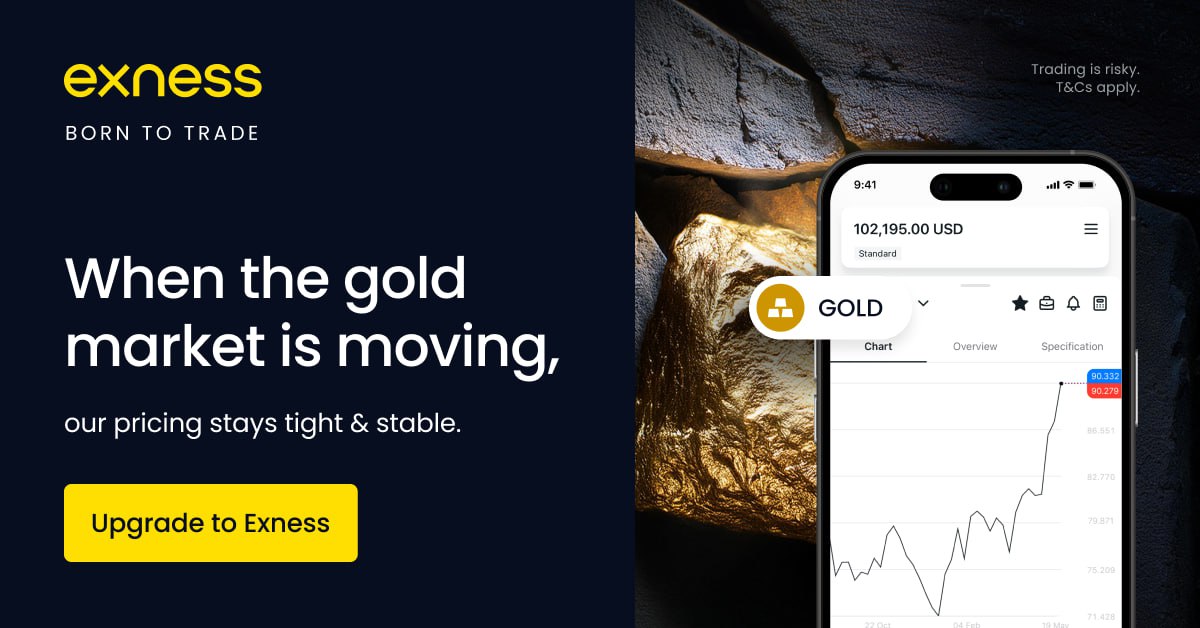
👉 Visit Website Exness Official ✅
Implications of Minimum Deposit Requirements
The varying minimum deposit requirements have significant implications for traders. Beginners may prefer accounts with lower deposit thresholds, allowing them to test the waters without overspending. This approach minimizes risk while gaining exposure to real-market conditions.
Conversely, more experienced traders may opt for higher minimum deposit accounts, as they often seek enhanced trading conditions and features. Understanding the implications of these deposit structures enables traders to align their investments with their risk appetites and trading goals.
Strategic Considerations for Depositing Funds
When deciding on the amount to deposit, traders should consider their overall financial situation and trading strategy. Setting aside funds specifically for trading can help mitigate the risks of emotional decision-making when navigating the markets.
Moreover, users should factor in potential trading costs—such as spreads, commissions, and fees—when determining their minimum deposit amount. Having a clear understanding of expected expenses will ensure traders maintain sufficient funds in their accounts to execute their strategies effectively.
In summary, comprehending the minimum deposit for Exness accounts is crucial for traders to establish a foundation for their trading endeavors. By analyzing different account types and considering the implications, users can tailor their investments to suit their individual needs and objectives.
Minimum Trade Amounts on Exness: Understanding Leverage and Lot Sizes
The concept of minimum trade amounts on Exness encompasses essential aspects related to lot sizes and leverage. Understanding these components is crucial for effective trading, as they influence potential returns and risk exposure.
Lot sizes determine how much of an asset is traded, while leverage amplifies the trading power, allowing traders to control larger positions than their deposited funds would typically permit. Comprehending how these elements work together will empower traders to make informed decisions.
👉 Visit Website Exness Official ✅
Defining Lot Sizes in Trading
Lot sizes refer to the standardized quantity of assets or currency pairs being traded. On the Exness platform, traders can choose between micro, mini, and standard lots, each representing different quantities of the underlying asset.
· Micro Lot: A micro lot represents 1,000 units of the base currency. This smaller size is often favored by novice traders as it allows for minimal risk exposure while still participating actively in the markets.
· Mini Lot: A mini lot symbolizes 10,000 units of the base currency. It strikes a balance between risk and reward, offering slightly more substantial exposure compared to micro lots.
· Standard Lot: A standard lot represents 100,000 units of the base currency. This size is typically preferred by experienced traders who seek greater potential returns, although it also carries higher risk exposure.
Selecting an appropriate lot size is critical, as it influences the potential gains or losses on every trade made. For newer traders, beginning with micro or mini lots can facilitate learning while minimizing risks.
Understanding Leverage in Trading
Leverage is a powerful tool in trading, allowing users to control larger positions with smaller amounts of capital. It acts as a multiplier, magnifying potential gains or losses based on the proportion of capital invested.
In the case of Exness, leverage levels can vary depending on the account type, ranging from 1:1 to 1:2000, and sometimes beyond. Higher leverage ratios enable traders to enter larger positions relative to their account balances, which can lead to significant profits—or losses.
While leverage can enhance profitability, it also introduces additional risks. Traders must exercise caution when utilizing high leverage, as it can amplify losses if market movements do not align with their expectations. Risk management strategies become paramount in mitigating these dangers.
Balancing Risk and Reward
When engaging in trading on Exness, striking a balance between lot sizes and leverage is crucial for managing risk and maximizing returns. Novice traders should prioritize education and practice to develop a strong understanding of how these elements interplay.
Using demo accounts can help traders experiment with different lot sizes and leverage levels without risking real money. Gaining hands-on experience will build confidence and competence, setting the stage for successful trading in live markets.
In conclusion, the concepts of minimum trade amounts on Exness, lot sizes, and leverage are integral to a trader's success. By grasping these principles, users can make informed decisions and tailor their strategies to achieve their desired outcomes.
Exness Social Trading: Risks and Rewards for Beginners
Venturing into the realm of Exness Social Trading offers both exciting opportunities and inherent risks. For beginners, understanding these dynamics is essential for navigating the challenges and capitalizing on potential rewards.
While social trading provides a supportive environment for learning and collaboration, it does carry risks that users must acknowledge. By taking a proactive approach to risk management, traders can strike the right balance between pursuing profits and safeguarding their investments.
Potential Risks in Social Trading
Like any investment activity, social trading is not without its risks. Some common risks associated with Exness Social Trading include:
· Market Volatility: Financial markets can be unpredictable, and sudden fluctuations can impact the performance of both seasoned and novice traders alike. Adverse market conditions may lead to significant losses, particularly if traders react impulsively to short-term movements.
· Dependency on Other Traders: Relying too heavily on the performance of others can lead to complacency. While copying successful traders can yield profits, beginners must remain engaged and vigilant in developing their own strategies and understanding market trends.
· Overestimation of Returns: While social trading can lead to impressive gains, traders should avoid unrealistic expectations. The hype surrounding successful traders may tempt beginners to chase after high returns, ultimately leading to disappointment when results do not align with expectations.
👉 Visit Website Exness Official ✅
Advantages of Exness Social Trading
Despite the risks, Exness Social Trading presents numerous advantages for beginners eager to learn and grow in the financial markets. These benefits include:
· Learning Opportunities: Following experienced traders allows newcomers to absorb valuable insights and strategies. By observing how successful traders navigate the markets, beginners can hone their skills and develop their own approaches over time.
· Diversification: Social trading facilitates diversification by enabling users to follow multiple traders simultaneously. This strategy helps spread risk across different assets or trading styles, reducing the potential impact of losses incurred by any single trader.
· Supportive Community: Engaging with fellow traders fosters a sense of belonging within the Exness community. Users can exchange ideas, seek advice, and share experiences, ultimately contributing to their growth as traders.
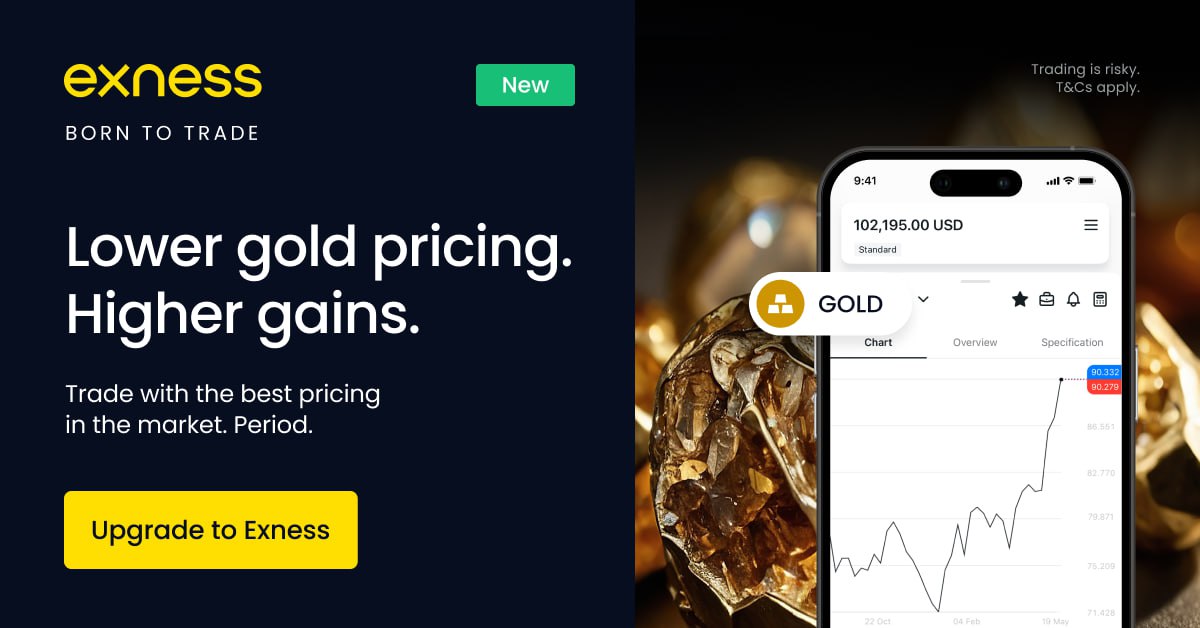
Developing a Balanced Approach
To thrive in Exness Social Trading, beginners should adopt a balanced approach that embraces both the learning curve and the potential for profit. Here are some key strategies:
· Start Small: Begin with a modest investment and gradually scale up as confidence and expertise grow. By alleviating pressure, beginners can focus on learning rather than solely chasing profits.
· Engage Actively: Stay involved in the social trading community, asking questions and seeking guidance from experienced traders. Active engagement fosters learning and helps reinforce important concepts.
· Implement Risk Management: Develop a solid risk management strategy that outlines acceptable loss levels per trade. Setting stop-loss orders and allocating capital wisely will mitigate potential downsides while preserving the opportunity for gains.
By recognizing potential risks and advantages, beginners in Exness Social Trading can create a balanced approach that lays the groundwork for long-term success. With dedication, discipline, and a willingness to learn, aspiring traders can navigate the complexities of the trading world.
Strategies for Successful Exness Social Trading
Success in Exness Social Trading hinges on implementing effective strategies tailored to individual goals and market conditions. By adopting a proactive approach and staying informed, traders can improve their chances of achieving sustainable profits.
While every trader's journey is unique, there are universal strategies that can guide both novices and veterans in optimizing their social trading experiences.
Selecting the Right Traders to Follow
The cornerstone of successful social trading lies in selecting the right traders to follow. Given the plethora of options available on Exness, it’s essential to conduct thorough research before committing to any specific trader.
When evaluating traders, consider the following factors:
· Performance Metrics: Analyze traders' historical performance, including profit percentages, maximum drawdowns, and the frequency of trades. This information provides valuable insights into their trading style and risk tolerance.
· Risk Levels: Understand the risk levels associated with the traders you follow. Those with consistently low drawdowns may indicate a more conservative approach, while higher-risk traders might deliver more volatile results.
· Trading Styles: Align your choice of traders with your trading philosophy. Some traders may focus on day trading, while others prefer swing trading or long-term strategies. Selecting traders whose styles resonate with your preferences can enhance your overall experience.
Diversifying Your Portfolio
Diversification is a fundamental principle in trading that helps mitigate risk. In the context of Exness Social Trading, following multiple traders with varying strategies and asset classes can safeguard against adverse market conditions.
Consider diversifying across:
· Different Asset Classes: Explore various asset classes, such as stocks, forex, cryptocurrencies, and commodities. Each class behaves differently under various market conditions, providing an opportunity to balance risk and reward.
· Diverse Risk Profiles: By following traders with differing risk profiles, you can create a more stable portfolio. Combining high-risk, high-reward traders with conservative ones can prevent large swings in overall performance.
· Geographical Variability: Engage with traders from different regions, as international markets may respond to economic events differently. This geographical diversification adds an extra layer of resilience to your trading portfolio.
Continuous Learning and Adaptation
The financial markets are dynamic, constantly evolving in response to economic developments and geopolitical events. To stay ahead, traders must commit to continuous learning and adapt their strategies accordingly.
Some effective ways to enhance your knowledge include:
· Educational Resources: Utilize Exness's educational materials, including webinars, tutorials, and articles, to deepen your understanding of market trends and strategies.
· Follow Market News: Stay updated on global economic developments and news impacting the financial markets. Awareness of current events will equip you with the knowledge to make informed trading decisions.
· Participate in Discussions: Engage with fellow traders in forums and discussion groups. Sharing insights and ideas can lead to new perspectives and trading techniques.
In summary, developing a strategic mindset is vital for success in Exness Social Trading. By carefully selecting traders to follow, diversifying your portfolio, and committing to continuous learning, you can cultivate a rewarding trading experience that enhances your skills and boosts your profitability.
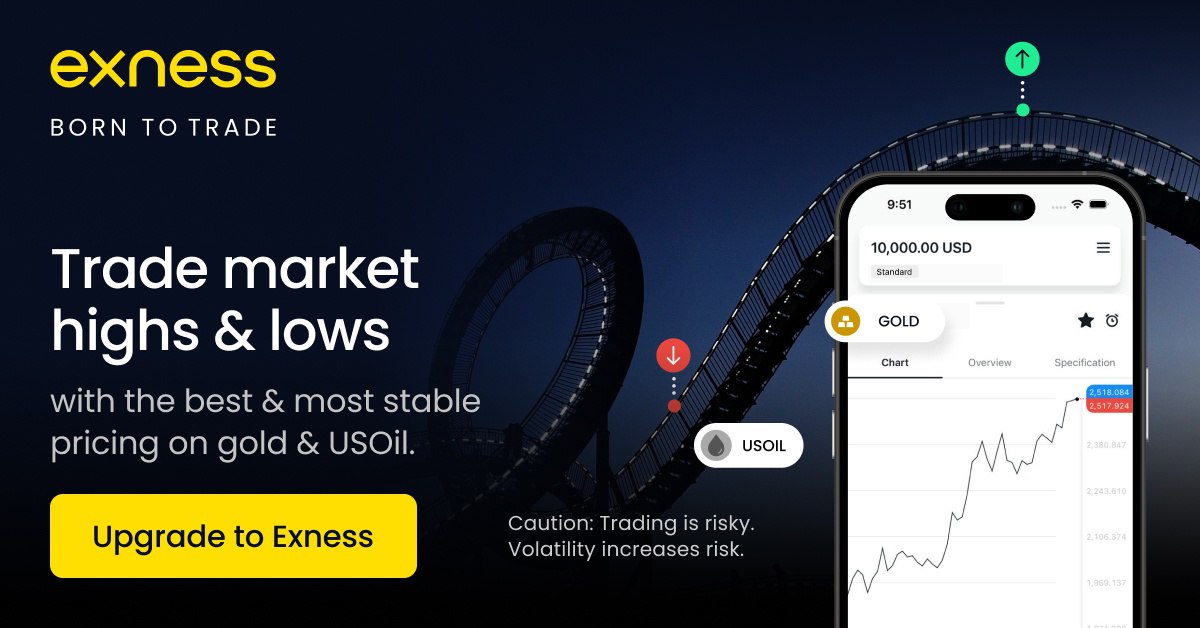
Comparing Exness Social Trading with Other Platforms
Within the expansive landscape of online trading, Exness Social Trading distinguishes itself by combining traditional trading features with social interaction. However, how does it stack up against other platforms in the marketplace?
Evaluating Exness against its competitors provides insights into its strengths and weaknesses, helping traders make informed decisions about where to invest their time and resources.
Unique Features of Exness Social Trading
Exness offers several unique features that set it apart from other social trading platforms. These include:
· User-Friendly Interface: Exness provides a seamless and intuitive trading environment, designed to cater to both new and experienced traders. Easy navigation enhances the overall user experience.
· Advanced Analytical Tools: Traders on Exness benefit from robust analytical tools, including performance metrics, trade histories, and market analysis. These features empower users to make data-driven decisions.
· Flexible Account Options: The array of account types available on Exness caters to traders with different preferences and investment levels. This flexibility allows users to find an account that aligns with their individual goals.
Comparing Social Trading Functionality
While many platforms offer social trading features, the extent of functionality and ease of use can vary widely. Here’s how Exness stacks up in comparison:
· Copy Trading: Exness excels in its copy trading feature, allowing users to replicate trades in real-time from top-performing traders. Other platforms may offer similar functionality, but Exness's focus on transparency and performance metrics enhances user confidence.
· Community Engagement: The strength of the Exness community lies in active engagement among traders. The platform fosters communication and collaboration, creating a vibrant ecosystem for sharing insights and strategies.
· Learning Resources: Exness prioritizes education through a variety of resources, empowering traders with the knowledge they need to succeed. Some competing platforms may lack comprehensive educational materials, leaving users feeling unsupported.
Assessing Fees and Costs
When evaluating trading platforms, understanding the fee structure is paramount. Exness typically offers competitive spreads and low commissions compared to other brokers, making it an attractive option for cost-conscious traders.
Some key considerations regarding fees include:
· Spread Comparison: Exness generally maintains tight spreads, benefiting traders by reducing their overall trading costs. Comparing spreads with other platforms can help identify potential savings.
· Commission Rates: Depending on the account type selected, commission rates may vary. Exness strives to maintain transparency in its fee structure, allowing traders to make informed choices.
· Withdrawal and Deposit Fees: Reviewing withdrawal and deposit fees is essential, as these costs can affect overall profitability. Exness offers multiple payment options, often with minimal or no associated fees.
In examining Exness Social Trading alongside other platforms, it becomes evident that Exness possesses a unique blend of features and benefits that differentiate it from its competitors. The emphasis on user-friendliness, educational resources, and community engagement positions Exness as a compelling choice for traders seeking a thriving social trading experience.
👉 Visit Website Exness Official ✅
Exness Social Trading Fees and Commissions: A Transparent Analysis
Understanding the fees and commissions associated with Exness Social Trading is crucial for traders aiming to maximize their profitability. Transparency in pricing is a hallmark of reputable platforms, and Exness follows this principle closely.
In this section, we'll analyze the different fee structures, commission rates, and hidden costs that traders might encounter while using Exness.
Fee Structure Overview
Exness adopts a transparent fee structure that allows traders to anticipate costs associated with their activities. Common fees encountered by users include:
· Spread: The difference between the bid and ask prices represents a fundamental trading cost. Exness is known for offering tight spreads, providing traders with a more cost-effective trading environment.
· Commission: Depending on the account type, Exness may charge commissions on trades. Pro and ECN accounts often have variable commissions that correlate with the trading volume, allowing for potential savings for high-frequency traders.
· Swap Rates: When holding positions overnight, swapping fees may apply. Positive or negative swap rates are determined by the interest rate differentials between the currencies being traded. Traders should be aware of these fees, as they can impact long-term trading strategies.
Evaluating Competitive Pricing
When comparing Exness's fees and commissions with other platforms, it’s essential to assess pricing in relation to the value provided. Lower trading costs are undoubtedly beneficial, but they should not compromise the quality of service and features offered.
· Comparative Spreads: Exness's commitment to maintaining competitive spreads positions it favorably against its rivals. Traders can compare average spreads across various asset classes to identify potential cost advantages.
· Commission Structures: Understanding the commission structure associated with different account types helps traders gauge potential expenses based on their trading volume. Exness offers flexibility, allowing users to choose an account that aligns with their trading habits.
Hidden Costs and Charges
Beyond the visible fees, traders should remain vigilant about potential hidden costs that may arise. Common areas where hidden fees may emerge include:
· Withdrawal Fees: Depending on the payment method used, withdrawal fees can vary. While some methods may incur no charges, others may involve fees that could impact overall profitability.
· Inactivity Fees: Certain platforms implement inactivity fees for dormant accounts. Exness currently does not impose such charges, but it is always prudent for traders to review the terms and conditions.
· Currency Conversion Fees: For traders operating in multiple currencies, currency conversion fees may apply. Being mindful of these costs is essential, particularly for those frequently transferring funds across accounts.
In summary, Exness Social Trading prides itself on maintaining a transparent fee structure that empowers traders to understand their potential costs. By evaluating spreads, commission rates, and hidden fees, users can make informed decisions that align with their trading strategies and optimize their overall profitability.
Conclusion
Entering the realm of Exness Social Trading provides a unique opportunity for traders at all levels to enhance their skills and capitalize on the insights of experienced investors. With a focus on community engagement, transparency, and user-friendly functionality, Exness is committed to supporting traders on their journeys toward success.
From understanding the Exness Social Trading Minimum Deposit to navigating the complexities of lot sizes and leverage, this comprehensive overview has equipped readers with the knowledge needed to develop effective strategies and make informed decisions.
Ultimately, the path to successful trading requires a balanced approach—striking a harmony between risk management and profit-seeking. By leveraging the tools and resources provided by Exness and remaining engaged with the trading community, users can foster a rewarding and fulfilling trading experience.
Whether you are a novice eager to learn or an experienced trader seeking new opportunities, embracing the world of Exness Social Trading can open doors to endless possibilities. The journey may be challenging, but the rewards of disciplined trading, continuous learning, and collaboration with fellow traders can lead to success in the ever-evolving financial markets.
💥 See more:
What is Exness broker? What does Exness do? Review Exness 2025
Is Exness legit or scam? Exness broker review 2025
Exness Account Types Review: Standard, Raw Spread, Zero, Pro
Contact Exness easily via chat, email or phone with detailed steps
Is Exness spread expensive? Summary of spreads for each account in 2025
What is Exness? Reviews of popular Forex brokers from Pantip users
Is Exness gold trading good? Deep dive into the advantages, disadvantages and strategies for trading gold

